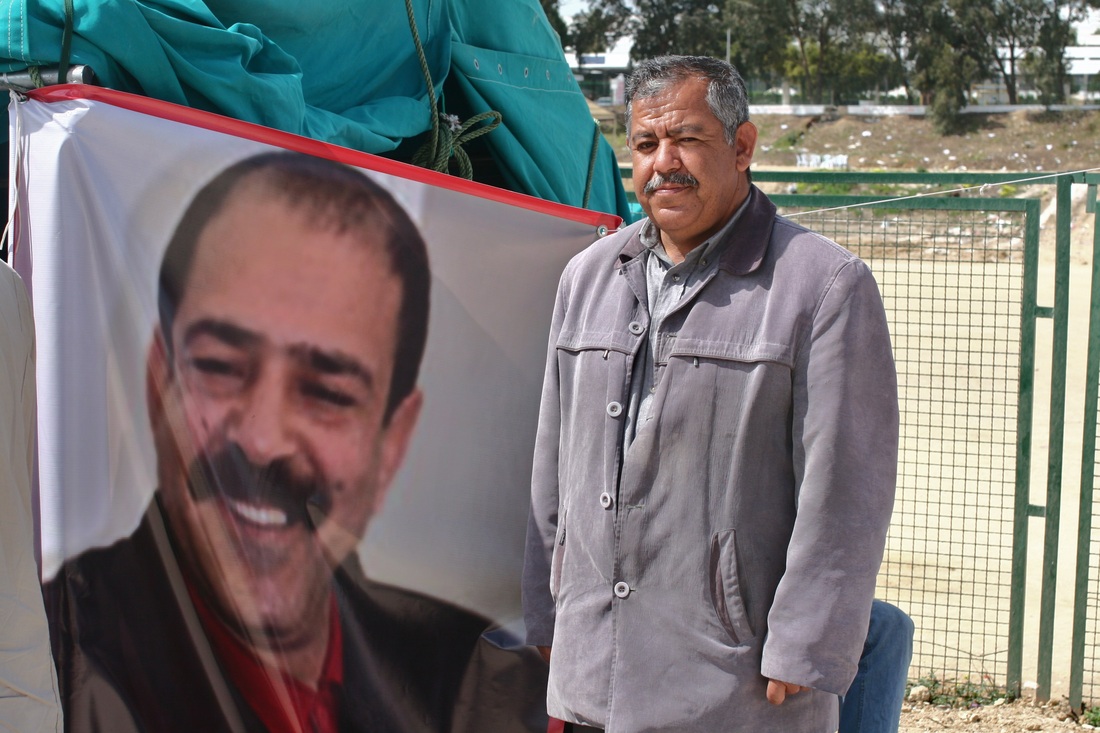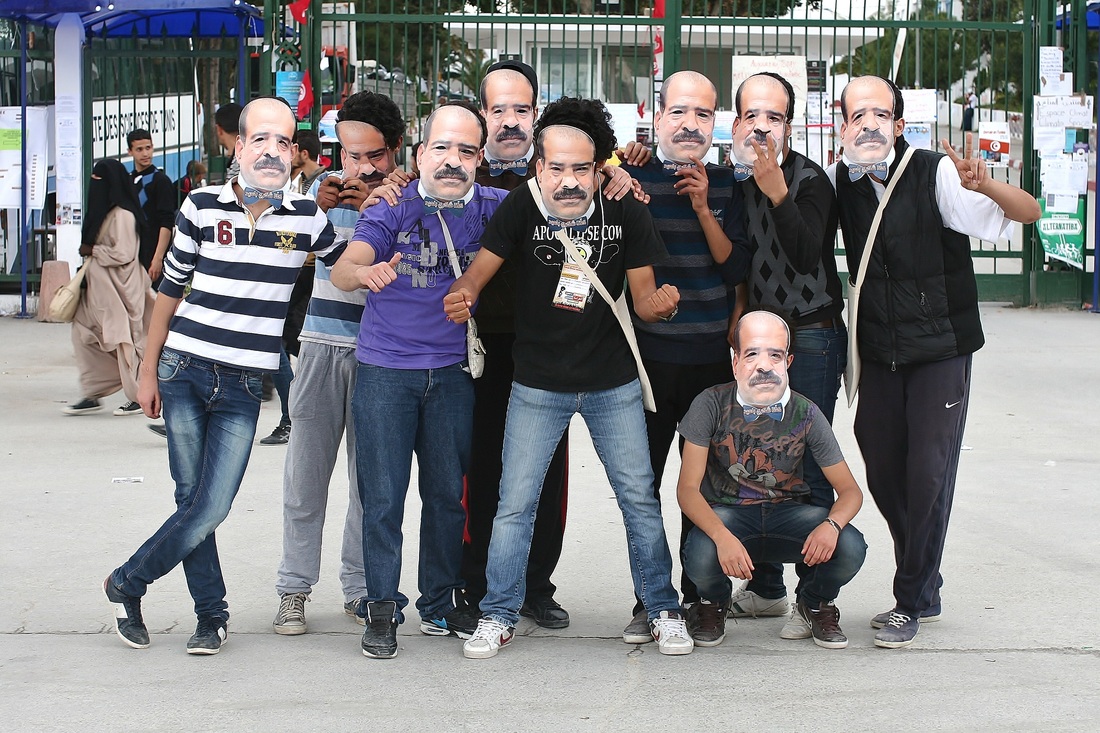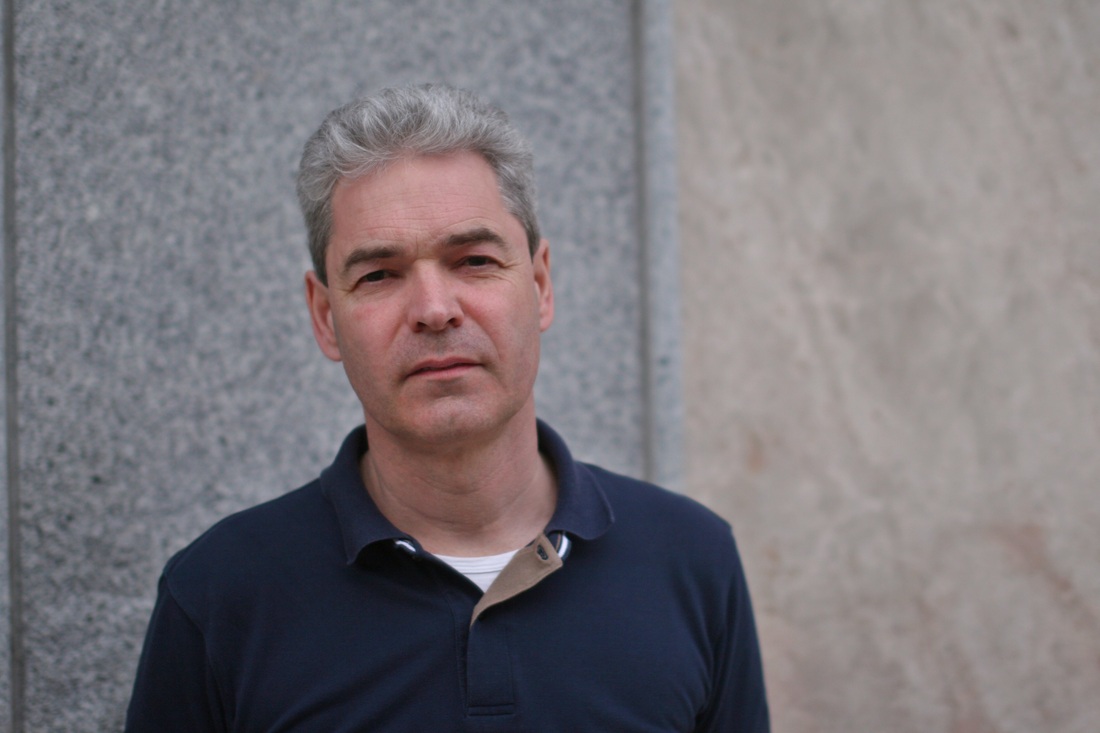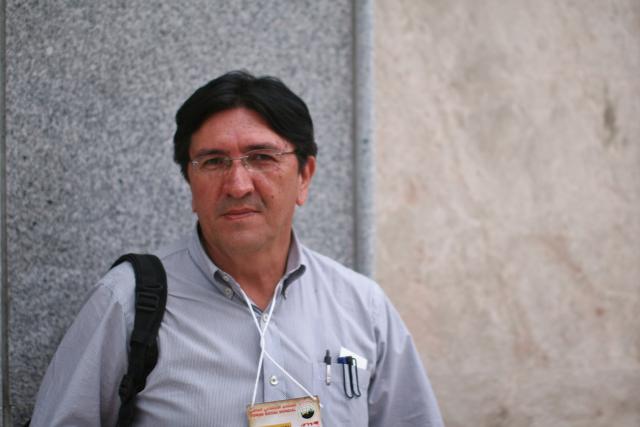|
There are 10 to 15 million Syrian-Lebanese people in Latin America. There is a community of about 5-10 million living in Brazil, 3,5 million in Argentina and half a million in Venezuela. They are mostly Christians who fled the Ottoman Empire at the end of the 19th century. They forgot their language and assimilated to the Latin American culture or so it seems.
A revival of Syria-Lebanese identity Before it was not rarely seen that these families use Arab words in their family dialect of Portuguese and Spanish. Also people should not forget that in those families grand mothers dish is mostly a Syrian-Lebanese dish. Now we see in São Paulo Arab cultural happenings with typical food and dance. Also more and more decedents are learning Arabic. With the Syrian crisis there is manifestation of their cultural and political identity, rarely seen in the Syria-Lebanese Diaspora, more commonly seen in the Palestinian Diaspora. The strange thing is that the revival started earlier than the Syrian crisis. Raise of the left and the strategic alliance with the Middle East Around the start of the new millennium a new leftist caudillo rose up, Hugo Chavez, for his socialism of the 21st century, he believed they needed a multipolar world, consisting of different dominant regional powers. In the first decade of the 21th century left-wing governments popped up in Latin Amerika. The anti-imperialistic logic and the terrorist attacks of 9/11 made the Middle East the focal point of the imperialistic and anti-imperialistic powers in the world. Chavez needed strategic alliances with the Middle East, he introduced a direct flight between Teheran and Caracas (Capital of Venezuela) and supported the regime of Al-Assad with oil shipments starting in 2010. Also current leftist President Maduro of Venezuela let a lawmaker form his party leave to Syria to fight with the regime, Maduro called it a dignified stance.When the war in Gaza broke out in 2014, Maduro said it would admit Palestinian children to Venezuela to give them medical care. He proclaimed that Israel was committing genocide in Palestina, while he is supporting genocide in Syria. In Uruguay the president Mujica said he would accept Syrian Refugees. The awaking Latin America's left and the Middle East forged a new anti-imperialistic axis or South-South relations in the first 10 years of the 20th century. The main countries involved are Brazil, Venezuela, Syria and Iran. In June 2010 Bashar Al-Assad did a Tour in Venezuela, Cuba, Brazil and Argentina, this was a first visit of a head of state of the Middle East to Latin America. His goal was to reactivate the relation with the diaspora in Latin America. Also to distribute anti-imperialistic publications to introduce people to geopolitics of the Middle East. Al-Assad and his wife seduced the public opinion and an energy treaty with signed between Venezuela and Syria, which would become crucial in the current crisis. Bashar Al-assad also took time to talk to the main leaders of the Syrian-Lebanese community to bring them closer to their roots. Just after the re-election of Chavez in 2012, he proclaimed that the opposition in Syria were terrorists, although this seemed more symbolical. The Syrian revolutions and the war that followed simultaneously could not leave the Syrian-Lebanese community untouched. Most of the communities and especially left wing of Syria-Lebanese community support the regime of Al-Assad. Only a small minority supports the revolution. The positions and mobilization of the communities in Venezuela, Brazil and Argentina. In Venezuela they still remember the 2002 coup d'état which was shown to the world in the documentary, the revolution won't be televised. For Venezuela of Chavez, later after his death, of Nicolas Maduro they supported the Syrian Regime, because they saw the revolution like in their country in 2002 as a coup d'état. They kept close contact with the Syrian embassy in Caracas and published the reports of the embassy in the press. For the Regime in Venezuela the “coup d'état” Syria was the work of Imperialistic forces and Al-Assad was doing a heroic battle against the reactionaries. On the other side Bashar Al-assad showed his solidarity with the violent crackdown on the protests in Venezuela earlier this year. Just a few days ago the university of Damascus honored Chavez for his bringing about a multipolar world on the 23th of April 2014. In Brazil the support is less ideological, but for example the Free Syrian Army (FSA) is considered as a terrorist group. The support from the regime comes mostly, because of fear of the Jihadist fighting along the FSA against the regime. They believe that this will lead to a new wave of immigration from Syria like at the end of the 19th century. Their community is mostly Christian and the community is afraid of the new position the minorities would have in a new Syria. In Argentina the support of the Syria-Lebanese community is mostly for the regime in Syria. They call the FSA, rats or Contra's like the army in Nicaragua that fought the Sandinistas. The supporters organized in 2012 a global march for Syria in Buenos Aires. The strange thing was that in Argentina, more than in Brazil and Venezuela the movement was geopolitical and strategic. They were protesting against the isolation of Iran and the destruction of the Shia axis. This is because there is an old and well organized community of Alawies in Argentina, and one of the founders of the Baath-party resided in Argentina. The diplomacy In November 2012 the special envoy of Al-Assad, Bouthaina Chaaban, was in Latin-America for treatment, but apparently this was a fake excuse to have a dialogue with the most important members of the Syria-Lebanese expats, like Al-Assad calls the diaspora. He met the Syrian-Lebanese vice-president of Brazil, Michel Temer, in a meeting organized by the Syria-Lebanese community in São Paulo. In Venezuela he tried to negotiate a new delivery of fuel and last but not least an escape plan for the Assad family and her entourage. Bashar Al-assad hold elections on the 3th of June of 2014, he send invitations to friendly countries, also the Latin American countries are included. The heads state and deputies of Brazil, Venezuela, Cuba, Ecuador, Bolivia and Nicaragua are invited to follow the poll. During Putin's tour in Latin America in July, he proclaimed that he wants that Latin America becomes their major ally according to his anti-imperialistic logic. The plan is to make Russia and the Latin-America more interconnected on the economical level. Russia is with the boycot of the Western world searching to import meat, fish, fruit and vegetables and diary products. These are opportunities for these communities, but what will this lead to in the future... Venezuela is buying weapons from China and Russia. China is an older player on the continent. The Latin-americans Caudillo's believe in a multipolar world, all they will get is a new imperialist power like China or/and Russia. The Latin American people are used to this, when the Chinese came they said it was a Chinese tale, or a lie, now it will a Russian tale. Conclusion Syrian regime is actively searching for military, energetic, public support in Latin America and the left in Latin America forged the public opinion in a way that it seems normal to support the regime from an anti-imperialistic viewpoint. The Latin American leaders are preparing a new home for the Syrian regime as the revolutionaries would be the mayor player in the construction of a post-conflict Syria. One thing is sure, the Syrian conflict is a mayor divider of the international communities. This won't bring peace to the innocent Syrian civilians who hardly survive the conflict in their country. This is the biggest mistake of the Latin American left, that they didn't support the people, but the heads of state. For this, the history will NOT absolve them. If you want to know there is not a single leftist brigade fighting in Syria and why the masses in the Arab world do not look to the left but to the right, to Islamists, for guidance, inspiration, and political leadership, start with the betrayal of internationalism and socialism by the governments of Venezuela and Cuba.
1 Comment
The Secretary General Democratic Patriots party, Chokri Belaid, was a vocal critic of the Tunesian government. He denounced the political violence of the ruling party Ennahda .
What happened? On the 6th of February he was killed in front of his house by unknown gun man. Prime Minister Jebali condemned it as act of terrorism . It was the first time such a killing acured in post-revolutionary Tunisia. Months before Islamist thugs taking law in their own hands, broke up a trade union rally and political meetings of the opposition were Chokri Belaid attended. Before his death he received death threads. A General strike coincided with his funeral. The shocking killing must serve as a wake-up call to the authorities. It is their duty to protect all individuals, including those who criticize the government or Tunisia’s leading Ennahda party, from violence. No group, regardless of its affiliation, can be above the law. (Source Amnesty International) What are the objectives of Democratic Patriots Party? First of all they want to realize the objectives of the Revolution. They want to create a progressive front based on social justice, popular participative democracy, a progressive and democratic constitution that guaranties social and economical rights, equal rights for man and women and a good economic balance between the different regions of the country. Chokri Belaid took a central place at the forum In the lower part of the forum before the entrance of the faculty of Law were everybody had to pass to go to the upper international level and to the middle eastern area below. There was the stand remembering Chokri, there were loud recorded messages played about the new martyr of the Tunisian democratic revolution. At the stand they were selling T-shirts books and when I said I was a blogger they were more then interested to give me an interview. I interviewed Fawzi responsible for the magazine of Democratic Patriotic Party. Fawzy told me that they were able to exchange a lot of idea about the participative democracy. It really feld like a global village to defend the poor and the oppressed. They gave away mask with the head of Chokri on, to remember that everybody could be Chokri and also to show that he still lives on in the harts and minds of the people he represented. On the 30th of March was a manifestation to close the WSF for the day of land. I looked at the first moment that the political rivalries would take over because there were so many people supporting Chokri and Ennahda represented. The murder is a very sensitive issue in Tunisia and Chokri is becoming the symbol of the opposition. Will the spirit of Chokri seduce the harts and minds of the Tunisian people. One thing for sure is the investigation is a sham and they let the gunmen run around freely. Justice needs to be done according to Fawzi. John Hilary: “World Social Forum has to become a global movement with political aspirations”3/31/2013 John Hilary is the executive director of the British NGO War on Want. They have partnerships with different social movements and trade unions. His organization promotes Global Justice. He was at the World Social Forum (WSF) to get in touch with progressive forces and social movements.
Around which themes does War on Want work? There are two themes. First of all is economic justice, fights against the capitalistic system, trade justice, unequal exchange and the role of multinationals. Secondly to fight colonialism and imperialism. Why was the WSF so important for your organization? Because we are active around colonialism and the struggle for Palestine, the Sahraoui and the Nato thread in the Middle East and North Africa. Also because of the new free trade agreement of the EU with the Agadir countries ( Morocco, Tunisia, Jordan and Egypt) we consider it as a new tentative of imperialism of the EU. Here we were able to talk to a lot of comrades about these issues and make new partners and political links. What was your impression of the WSF 2013 in Tunis? The fact that the PA (Palestinian Authority) was represented was really bad, because social movements and organizations from Palestine were afraid to come. USAID had a stand and people were asking what they did here. There were actually two forums, one for the international community on the top of the hill around economic justice and environment below the hill there was the Arab mobilization. There were few interactions between the two places. You could see that at the talks around Palestine and Iraq there were mostly Arab people. What brings the future? That's a big question, were do we go next. It was an open space, but more people are thinking that we should create a global movement for political change. It's nice to talk in a sunny place, but we need to act. Also one of the Founding Fathers, Chico Whitaker, claimed for years it should be an open space, but now he declared before the WSF 2013 that it should become a global political movement. We can say that capitalism is in crisis and we see the worst form of capitalism reviving with austerity measures. I think social movements have failed in this struggle to give other models a chance in the Western World. In the Western World political change is less possible because the state is to anchored in society and is too strong. In Bolivia this was possible because the state was weak. Pedro Santana is the president of the Colombian organization “Viva la Ciudadania”. He is also one of the founders of the World Social Forum (WSF). He was for 4 years head of the methodological assembly of the WSF. He is a sociologist and philosopher who created in '89 his organization as the result of a social movement for a new constitution in Colombia. I met him in the hotel lounge of our hotel, were he was willing to give me an interview about how the process started in 2001 in Porto Alegre. And has now become a world wide movement and interaction point of the civil society.
What are the objectives of Viva la Cuidadania? We are an organization based in the rural areas and also in cities. We focus on the participation of civilians in the political process. We educate people and we give information. We have a newsletter in Colombia with more than 60 thousand subscribers. Are the problems in Colombia global problems? Yes, because the problems that are tackled in the WSF are the same as in Colombia. We share a lot of similar problems as the one's the WSF were based on. These we have to attack together with other organizations all around the world. The problems in Colombia are for example: the armed conflict, the drugs trafficking, social exclusion, indigenous right, environmental problems, the struggle for social rights, the struggle of small farmer's against the big multinationals. Why is the WSF not an event, but a process? It's the 10th time we organize a global event, but there are many local events and national events, because a global movement needs a local and national base. The interactions that happen at the WSF are long term interactions, people meet on the forum and continue working together in the future. We can say that it's becoming more a movement than a forum. Because we represent counter current against Neoliberal ideology. We opted to expand it world wide and make forums all over the world and around different subjects. How did the WSF shape this world? In a world were they declared the end of the history. The Washington Consensus declared in the nineties that Neoliberal ideology would dominate the world until the end of history. The WSF created in this setting the conscience that an other world is possible. At this moment the forum represent the eruption of this slogan. It's the opposition against the simple idea that Neoliberalism dominates this world. It criticizes the one-track thought and the totalitarian thought that doesn't take in account poverty and that the only world possible is the one of profit and the one of globalization. The Forum represents this counter current. In which stage of the WSF are we? We started of in Porto Alegre in 2001 and in 2004 it was held for the first time outside Brazil (in mumbai) to expand it to other regions and create this global movement. In 2006 it took place in Bamako, Karachi and Caracas, in 2007 in Nairobi, in 2011 in Senegal and now in Tunis. We held it in Nairobi in 2007 because the Washington Consensus said that Africa was a lost continent. The big capitalist casino said that Africa was death. We showed the world that Africa is resilient and we made the invisible visible. Now there is Tunis, were we show the world that we were right that an other world is possible in Africa. North Africa prepared during 7 years for the forum, we made visible how their culture has been stigmatized and how much violence has been done against them. The had to take it up against undemocratic regimes and this struggle they called the Arab Spring. They got rid of Ben Ali, Mubarak and Qaddafi in a revolution for freedom, civil rights, woman’s rights and against exploitation and poverty. For this we are here we are here to help them in their struggle. What was the impact of the WSF in Latin America? In Latin America the movement succeeded in the reconstruction of democracy in most of the countries. These countries have changed the international regime and got more autonomy. The poor people and the excluded got in power and the got more control of human resources and claimed more public goods. The democratic regimes have a more autonomous relation with the United States and with the international centers of power. After the first WSF in 2001 in Porto Alegre a lot af progressive presidents came into power in Latin America, it created a real political revolution with Lula in Brazil, Tabaré Vasquez in Uruguay, Correa in Ecuador, Kirchner in Argentina, Ortega in Honduras, Lugo in Paraguay and Evo Morales in Bolivia. In the WSF 2002 Lula was a guest and after his election he said the if the WSF wouldn't unblocked the harts and minds of the Brazilians he would never have been president of Brazil. The other progressive presidents followed on this wave of Chavez and Lula in Power in Venezuela and Brazil. What are the most important characteristics of the WSF in Tunis? The forum is an open space with a lot of plurality and diversity. It's based on the secular principles, this is what it bring to the Arab culture. There are a lot of people from all parts of the world with different experiences. We promote an exchange of ideas and experience. It's also a place to network and to bring people together. It's a real cocktail, with more than 1000 activities this year. There are no indicators to measure the impact, but in Latin America there has been a big evolution in the mind set of people thanks to the WSF. Here in Tunis I gave some lectures and I noticed that 40% of the attendants were young Tunians students. For them it will be really difficult to wake up again after the WSF in a regime that is very conservative, while the forum was so open. We learned them that here that god doesn't make politics, but people do. (c) Willemjan Vandenplas |
Archives
January 2015
Categories
All
|




 RSS Feed
RSS Feed
